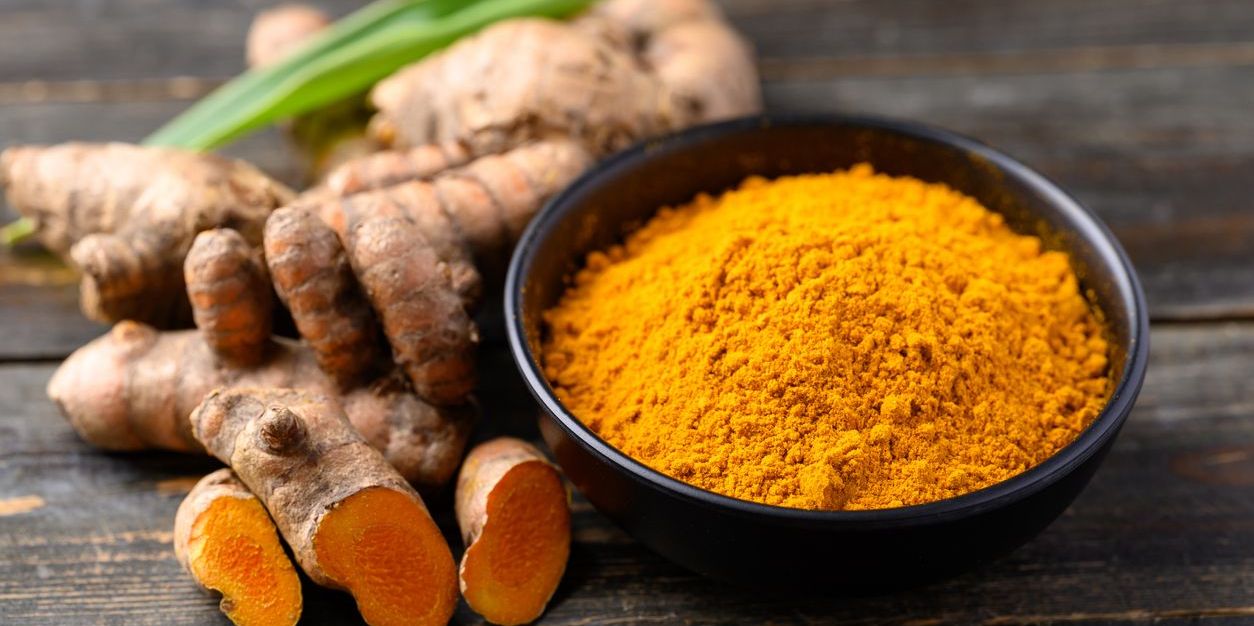Summary: Yes, there are some natural remedies that work for depression. Evidence shows that several natural remedies relieve depressive symptoms more effectively than a placebo, some showed superior results to placebo when added to a pharmaceutical antidepressant, and some showed more effective symptom relief and/or comparable results to low-dose pharmaceutical antidepressants.
Key Points:
- In this context, by natural remedies that work for depression, we mean over-the-counter herbs, herbal supplements, or dietary supplements people take to relieve symptoms of depression.
- No natural remedies outperformed a standard dosage of pharmaceutical antidepressants for relief of depressive symptoms across all depression metrics.
- Some natural remedies appear to improve symptom relief when combined with pharmaceutical antidepressants
- Some natural remedies showed superior or equivalent results to pharmaceutical antidepressants on some depression metrics, and some showed superior or equivalent results to on at least (1) depression metric.
Evidence For Natural Remedies That Work for Depression
In healthcare, there’s a long tradition of natural remedies that predate modern medicine. In the 20th century, modern medicine matured into the incredibly effective system of diagnosis and treatment we know today. With the advent of pharmaceutical medication, the discovery of DNA and the mapping of the human genome, the invention of imaging technology that allows to see inside the human body and brain in real time, practitioners of modern medicine can cure illnesses, treat injuries, and relieve suffering in ways we never dreamed were possible.
But there’s still a place for natural remedies, herbal remedies, and non-pharmaceutical remedies in our healthcare system. The question of whether to use a medication or remedy does not rely on whether it’s herbal or human-made, but rather on evidence gathered through experimentation via the scientific method.
If evidence shows it’s safe and it works – and other researchers can replicate the studies – then a medication, an herbal remedy, or a dietary supplement may receive approval as a medical remedy for a specific condition.
This is true for herbal remedies that claim to relieve symptoms of the common cold and true for herbal remedies that claim to relieve symptoms of depression. If real scientific evidence exists, then the medical community will follow the data and recommendations of the experts and use it to help patients. With regard to natural remedies that work for depression, though, there’s a notable lack of scientific research into the effectiveness of the most common, non-pharmaceutical natural remedies – until now.
New Research Examines Natural Remedies That May Work for Depression
In 2025, an international group of mental health researchers designed a study called “Understanding the Research Landscape of Over-The-Counter Herbal Products, Dietary Supplements, and Medications Evaluated for Depressive Symptoms In Adults: A Scoping Review” with the following goal(s):
“We aimed to explore the size and nature of the evidence base available for OTC products for depression in adults aged 18-60, and:
Summarize the size and nature of the evidence base that assesses the effectiveness of OTC products.
Determine the areas with substantial evidence and those with gaps to identify directions for future research.”
In the U.S. and worldwide, evidence indicates the most effective treatment for depressions is a holistic, comprehensive, multi-modal approach that includes:
- Psychotherapy, with methods such as cognitive behavioral therapy (CBT)
- Medication, with prescription pharmaceutical antidepressants
- Lifestyle changes, such as improved sleep, a healthy diet, and daily exercise/activity
- Community and family support, with family involvement in treatment and mutual self-help groups
- Complementary supports, such as yoga, meditation, stress management, and expressive therapies
Natural remedies that work for depression currently fall into the complementary support category: they’re not a first-line, standalone treatment, but some evidence shows they may help, and therefore, some patients with depression take them to help alleviate their depressive symptoms. The real questions most people want an answer to, though, are not whether they help a little, help in addition to, or might help for some people, but rather:
Do any natural remedies work as well as pharmaceutical antidepressants?
Can a natural remedy replace a pharmaceutical antidepressant for depression treatment?
The real answers to those questions – based on the latest research – are “No” and “No.” However, the researchers found significant evidence for the following natural remedies that may work in reducing symptoms of depression:
- Omega-3s: these are a category of fatty acids found in nuts, seeds, and fish.
- St John’s Wort: this is a yellow flowering plant used as a traditional remedy for skin problems. It’s also used for menopause, and symptoms of depression.
- Saffron: this a spice – the most expensive one on earth – made from dried Crocus sativus, common in Indian food.
- Probiotics: probiotics are living bacteria and/or yeasts that populate the human gut/digestive system that help control unwanted bacteria/yeasts, maintain homeostasis in the gut/digestive system, and help the immune system.
- Vitamin D: this is an essential nutrient for human health, found in some fish, also produced by human skin in direct exposure to sunlight.
Natural remedies with promising evidence for reducing symptoms of depression included:
- Folic acid: also called folate or vitamin b-9, folic acid is associated with the formation of red blood cells. It’s also associated with the construction of DNA in the human body.
- Lavender: this is a flowering herb with an aroma most people find comforting, often used in tea or as an oil to help aid sleep and/or promote relaxation.
- Zinc: zinc is a nutrient found in various types of seafood, meat, beans, nuts, whole grains, eggs, and dairy products. Zinc is active in the human immune system and aids in the formation of DNA.
- Tryptophan: this is an essential amino acid associated with the formation of serotonin, melatonin, and vitamin b3. Tryptophan must be ingested through food. The human body does not produce tryptophan independently.
- Rhodiola: also called artic root or golden root, this herb is commonly used in northern Europe, Scandinavia, and Russia to improve physical performance and boost mental clarity.
- Lemon balm: this lemon-scented herb is commonly used in traditional herbal medicine to improve digestion, improve sleep, promote relaxation, and improve mood.
Let’s take a look at how well these natural remedies worked in comparison to pharmaceutical antidepressants, no treatment, placebo, or as an addition to treatment with a pharmaceutical antidepressant.
The Results: Natural Remedies That Work for Depression
The research team identified over 15,000 possible publications for analysis, excluded over 98 percent for failure to meet scientific research criteria, and ended with data from 211 published papers and 44 ongoing studies. All studies relied on standardized depression scales to identify primary outcomes, such as the Hamilton Depression Rating Scale (HDRS), the Montgomery–Åsberg Depression Rating Scale (MADRS), and the Beck Depression Inventory (BDI).
We’ll share their data below, starting with the natural remedies for which they identified significant evidence for reducing symptoms of depression.
Natural Remedies That Work for Depression: Significant Evidence
Omega 3s
- 13 studies showed superior results compared to placebo
- 23 found no difference
- 2 studies showed improved results when added to a pharmaceutical antidepressant, compared to placebo
- 1 found no difference
- 1 study showed superior results to low-dose pharmaceutical antidepressant
- 1 found no difference
St. John’s Wort
- 16 studies showed superior results compared to placebo
- 9 found no difference
- 4 studies showed superior results to pharmaceutical antidepressants on more than (1) depression metric
- 11 found no difference
Saffron
- 8 studies showed superior results compared to placebo
- 3 found no difference
- 6 studies showed no difference compared to pharmaceutical antidepressants on more than (1) depression metric
Probiotics
- 9 studies showed superior results compared to placebo
- 6 found no difference
- 1 study showed no difference between a high probiotic diet and placebo
Vitamin D
- 6 studies showed superior results compared to placebo
- 3 found no difference
- 1 study showed no difference compared to low-dose pharmaceutical antidepressants on more than (1) depression metric
- 2 studies showed superior results compared to no treatment
- 1 study showed no difference compared to no treatment
What we found informative here are two things: the strength of Omega 3s, St. John’s Wort, and saffron. While not reaching the threshold for a standalone treatment, the evidence indicates a potential role for these natural remedies as adjunct therapies. They may also function as helpful supplements for people with low mood who don’t meet clinical criteria for major depressive disorder.
Natural Remedies That Work for Depression: Promising Evidence
Folic acid
- 9 studies showed superior results compared to placebo
- 2 found no difference
- 1 study showed no difference compared to low-dose pharmaceutical antidepressants on more than (1) depression metric
- 1 study showed inferior results compared to no treatment
Lavender
- 3 studies showed superior results compared to placebo
- 1 study showed no difference/non-inferior results compared to pharmaceutical antidepressants on all depression metrics
- 1 study showed inferior results compared to pharmaceutical antidepressants on all depression metrics
- 3 studies showed superior results compared to no treatment
Zinc
- 4 studies showed superior results compared to placebo
Tryptophan
- 2 studies showed superior results compared to placebo
- 1 study showed improved results when added to a pharmaceutical antidepressant, compared to placebo
- 2 studies showed no difference when added to a pharmaceutical antidepressant, compared to no treatment
Rhodiola
- 4 studies showed superior results compared to placebo
- 1 study showed inferior results compared to placebo
- 1 study showed no difference compared to a pharmaceutical antidepressant
Lemon balm
- 1 study showed superior results compared to placebo
- 1 study showed improved results when added to a pharmaceutical antidepressant, compared to placebo
- 1 study showed no difference compared to a pharmaceutical antidepressant
- 1 study showed no difference compared to no treatment
What we find here, again, is a possible role for these herbal remedies for people with low mood that don’t meet criteria for clinical major depressive disorder (MDD). While nothing in this data suggests these remedies can replace a pharmaceutical antidepressant for relief of depressive symptoms, the data indicate these herbal remedies – in addition to helping people with low mood but not clinical depression – may be effective as an adjunct to treatment with standard antidepressants.
We’ll discuss these results below.
Natural Remedies Can Help People With Depression, But How?
According to evidence cited in the study – review the source data here – herbal remedies may help reduce depressive symptoms through the following mechanisms:
- Reducing inflammation
- Reducing oxidative stress
- Altering the microbes active in the gut-brain axis
- Calming excess activity in the hypothalamic-pituitary-adrenal axis (HPA) in the human brain
- Promoting formation of neurotransmitters associated with positive mood
Further study is needed to establish the details on how natural remedies work for depression, in order to establish safety protocols and rule out possible negative consequences for special populations and/or people with complex pre-existing conditions. In the meantime, for people with low mood, or people with depression seeking to augment their current treatment plan with an herbal remedy, here’s how the research team characterizes the state of the evidence for the use of herbal remedies for depression:


